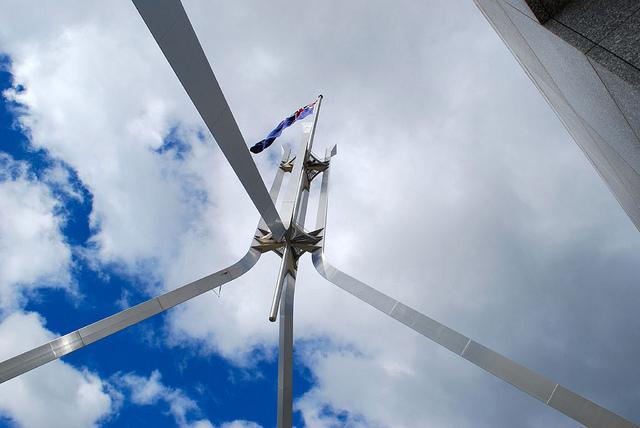The role of national values in combatting extremism
Posted By Stephanie Huang on July 23, 2015 @ 15:00
On Monday, British Prime Minister David Cameron unfurled his Government’s five-year strategy [2] to combat extremism in the UK.
Cameron argued that there are four key reasons that people are drawn to extremist ideology: extremism can appear ‘exciting’, people don’t have to support violence to be attracted to extremism, extremists are drowning out positive Muslim voices and finally, some British-born Muslims experience an ‘identity crisis’.
Responding to this characterisation of extremism, Cameron announced that promoting liberal values will form a core component of the UK’s plan to counter extremism:
‘…any strategy to defeat extremism must confront, head on, the extreme ideology that underpins it… In doing so, let’s not forget our strongest weapon: our own liberal values…We should contrast their bigotry, aggression and theocracy with our values…we can all feel part of this country—and we must now all come together and stand up for our values with confidence and pride.’
Cameron announced a number of initiatives to combat the problem at hand. They include legislating to curb the messages of leaders and foreign channels that propagate extremism, setting up a local community engagement forum that puts government in touch with those challenging extremism, and calling for a report on integration of minorities [3].
Cameron’s speech was largely well-received [4]. There’ve been some criticisms that the strategy unfairly targets Muslim communities [5] and stifles free speech [6]. But the fact remains that the UK has developed a nuanced understanding of extremism, and created a comprehensive model to address it in a way that goes beyond simple counter-narratives.
As a point of contrast, the US exemplifies the national security benefits that a unifying national narrative can bring. The US hasn’t needed to adopt a strategy to boost its values in combatting extremism – it already has a history of a strong national identity. Recent Pew Polls (see here [7] and here [8]) have consistently found that American Muslims are much more integrated than other Muslims minorities around the world. And while the US has some problems with extremism, it has roughly the same number of nationals fighting for Islamic State as Australia [9], despite having a population 13 times the size.
What does this mean for Australia? Like the UK, Australia has a history of difficulty in defining its national identity. Anthony Bergin and I argued in an op-ed [10] last week that clarifying and promoting Australian values should therefore be integrated into our own national strategy to combat extremism.
It’s understandable that there’s been difficulty in defining ‘Australianness’. Many Australian citizens have grown up at the intersection of two or more cultures. About a quarter of Australians were born overseas, and almost half the population has at least one parent who was born overseas [11]. As such, forming a clear Australian identity becomes increasingly complex, and there’s legitimate reluctance to discuss this sensitive topic.
Australia’s recent experiences with home-grown extremism suggest that a lack of connection to Australian values can have dire consequences for a small, but significant minority. While almost all of the 54 individuals identified in ASPI’s Gen Y jihadists [12] publication were born in or grew up in Australia, at least 70% of them come from diverse ethnic backgrounds. In the 1990s and early 21st century, the majority of home-grown extremists had Lebanese heritage, but there’s been a notable shift to a much wider range of ethnicities.
If our policy to counter extremism doesn’t address the potential role of identity conflicts, we risk overlooking a vital facet of the radicalisation problem.
In the Australian context, we could build on the traditional notion of the ‘fair go’. Recent research [13] found that 9 out of 10 Australians think that fairness is a core Australian value. Fairness, which is grounded in inclusion, could provide fertile ground for framing a revamped Australian identity.
I’m not suggesting that Australia should reinvigorate how it defines its values for the sole purpose of preventing violent extremism. Merging these two goals risks the strategy being perceived as opportunistic, and could well be counter-productive.
My point is that extremism has exposed weaknesses in the community’s sense and understanding of Australian values. To quote the citizenship discussion paper [14], ‘citizens who become involved in terrorism are rejecting Australia’s values and commitment to a safe and harmonious society’. We need a longer-term strategy to build community connection with Australian values.
Redefining and promoting national values is a good start. This should also be co-ordinated with the related but separate field of building social cohesion. Ideas of this vein have already been put forward. PhD candidate Hussain Nadim, for example, advocated [15] investing in sport, film competitions and government internships for Muslim youth.
Talking about Australian values doesn’t need to be an agenda of the far right. Australian-bred extremism serves as a grim warning of the importance of having strong yet inclusive values. This debate also provides an opportunity for government and civil society to revitalise what it means to be Australian. There’s a need for all Australians to feel Australian instead of just being Australian, and if they do, the benefits could well transcend national security.
Article printed from The Strategist: https://aspistrategist.ru
URL to article: /the-role-of-national-values-in-combatting-extremism/
URLs in this post:
[1] Image: https://aspistrategist.ru/wp-content/uploads/2015/07/4698271437_73e2fbcac3_z.jpg
[2] strategy: http://www.independent.co.uk/news/uk/politics/david-cameron-extremism-speech-read-the-transcript-in-full-10401948.html
[3] calling for a report on integration of minorities: http://www.bbc.com/news/uk-politics-33592323
[4] well-received: http://www.telegraph.co.uk/news/uknews/law-and-order/11751259/David-Cameron-is-right-to-tackle-extremist-ideas-as-well-as-behaviour.html
[5] unfairly targets Muslim communities: http://www.csmonitor.com/World/Europe/2015/0720/David-Cameron-offers-plan-to-counter-attraction-to-join-extremism
[6] stifles free speech: https://theconversation.com/extremism-plan-pushes-the-uk-down-a-dangerously-illiberal-road-44948
[7] here: http://www.pewresearch.org/2007/05/22/muslim-americans-middle-class-and-mostly-mainstream/
[8] here: http://www.csmonitor.com/USA/Society/2013/0501/How-US-Muslims-are-different-Pew-poll-sheds-light-on-global-contrasts
[9] it has roughly the same number of nationals fighting for Islamic State as Australia: http://english.alarabiya.net/en/perspective/features/2015/03/22/Australia-a-puzzling-hotbed-of-ISIS-recruiting.html
[10] op-ed: http://www.smh.com.au/comment/why-so-shy-in-pushing-australianness-to-counter-terrorism-20150712-giaect.html
[11] About a quarter of Australians were born overseas, and almost half the population has at least one parent who was born overseas: http://abs.gov.au/websitedbs/censushome.nsf/home/CO-59
[12] Gen Y jihadists: https://www.aspistrategist.ru/publications/gen-y-jihadists-preventing-radicalisation-in-australia/GenY_jihadists.pdf
[13] research: https://www.cis.org.au/images/stories/policy-monographs/pm135.pdf
[14] citizenship discussion paper: http://www.border.gov.au/Citizenship/Documents/your-right-your-responsibility-citizenship.pdf
[15] advocated: http://www.lowyinterpreter.org/post/2015/06/01/Muslim-radicalisation-Why-Australias-strategy-is-failing-and-how-to-fix-it.aspx
Click here to print.
